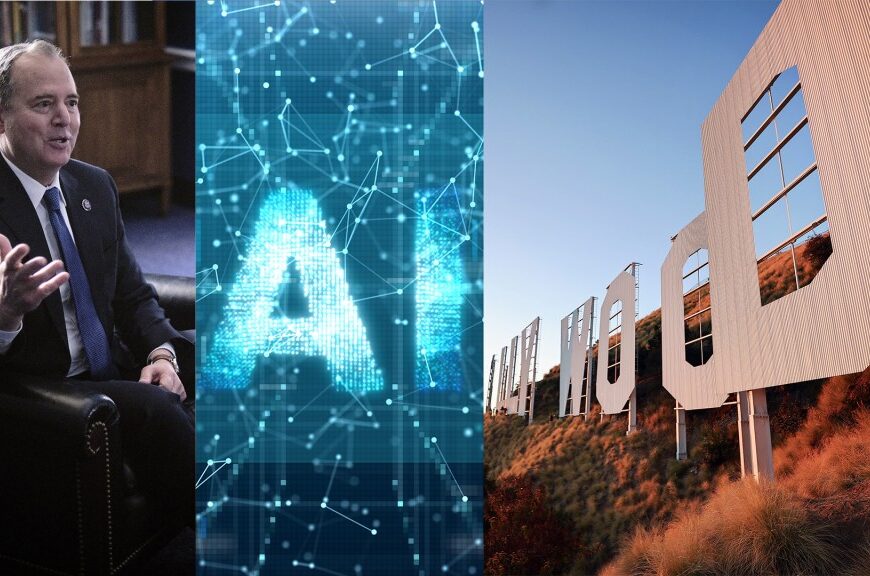SAG-AFTRA, IATSE, the Writers Guild of America (WGA), and even the Directors Guild of America (DGA) have supported a legislative shift to introduce new, slightly stringent protections concerning artificial intelligence.
Duncan Crabtree-Ireland, the National Executive Director and Chief Negotiator of SAG-AFTRA, emphasized that all content produced by AI ultimately stems from human creativity. He expressed support for a new bill proposed by Rep. Adam Schiff (D-CA), stating that safeguarding artistic content and intellectual property is paramount. SAG-AFTRA fully endorses the Generative AI Copyright Disclosure Act, viewing it as a crucial measure to ensure that technology serves people rather than the other way around.
As Rep. Schiff vies for California’s junior Senator position, he introduced the Generative AI Copyright Disclosure Act in the 118th Congress on Tuesday. This legislation, if approved by both the House and Senate and signed by President Joe Biden, would mandate businesses and organizations using copyrighted materials to register with the Register of Copyrights before utilizing these assets to train their AI systems.
The bill aims to enhance transparency by requiring disclosure of the sources of data and datasets used in creating AI-generated content. With civil penalties of up to $5,000 for violations, the legislation aims to hold tech companies and studios accountable for their AI practices.
Despite the potential impact on his base, Rep. Schiff is addressing the concerns surrounding AI and its implications for workers and creators. The WGA and SAG-AFTRA strikes last year highlighted the importance of AI protections for guild members, which ultimately became a significant aspect of the agreements reached with studios and streaming platforms.
Various industry leaders have voiced their support for Schiff’s bill, emphasizing the need to protect creators and ensure ethical and transparent use of AI technology. The legislation is seen as a crucial step in safeguarding intellectual property and preventing potential misuse of generative AI.
The introduction of legislative measures to regulate the unchecked growth of AI has garnered bipartisan support, with both Democrats and Republicans recognizing the need to address the challenges posed by AI to workers and creators.
Schiff’s bill aligns with President Biden’s Executive Order on AI and Vice President Kamala Harris’s three-pillar strategy, continuing the momentum towards responsible AI governance. Additionally, state-level bills in Sacramento are being proposed to limit the influence of AI, particularly in the entertainment industry.
Overall, the Generative AI Copyright Disclosure Act represents a significant effort to balance technological advancement with fairness and respect for creativity in the age of AI.









